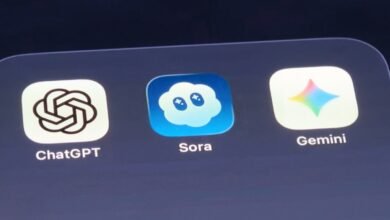Create Your Own Deepfakes with OpenAI’s New Sora App

▼ Summary
– OpenAI released Sora, an AI video app for iOS that requires an invite code and features a TikTok-like feed of user-generated clips.
– The app adds AI-generated sounds to videos for the first time and includes a warning that videos may depict recognizable people but show unreal actions.
– Users can create a digital likeness of themselves through a recording process and control who can use it in videos, with options ranging from everyone to approved contacts only.
– Sora enables seamless creation of personalized deepfakes that often appear convincingly real, though some videos may contain errors or rough edges.
– The app allows users to incorporate others’ likenesses in videos by tapping on faces and adding them as “cameos” based on simple text prompts.
OpenAI has launched a new AI video application named Sora, introducing a TikTok-inspired “For You” feed filled with user-created clips. This marks the company’s first product that integrates AI-generated audio directly into videos. Currently, access is limited to iOS users who must receive an invitation code to participate.
Upon signing up, users encounter a notice stating, “You are about to enter a creative world of AI-generated content. Some videos may depict people you recognize, but the actions and events shown are not real.” OpenAI is positioning the creation and sharing of AI deepfakes as an emerging entertainment trend. The app presents generating deepfake videos as a form of casual, scrollable amusement, whether featuring friends, influencers, or strangers. Its primary interface offers a continuous stream of short, AI-produced videos showcasing human faces.
During setup, individuals can create a digital replica of themselves by reading numbers aloud and rotating their head while the app records. OpenAI CEO Sam Altman emphasized the team’s significant effort toward achieving character consistency in a blog post about Sora’s debut. Users retain control over who can employ their digital likeness in videos, with settings ranging from open to everyone, restricted to themselves, limited to approved contacts, or shared only with mutual app connections. Whenever someone generates a video using your likeness, even if it remains in their drafts, you can view the complete clip from your account page.
Initial observations reveal that many highly-liked videos on the “For You” feed featured Altman’s digital double. One AI-generated segment portrayed the OpenAI CEO attempting to steal a graphics processing unit from a Target store. When the character gets apprehended, a voice resembling Altman’s begs a security guard to let him keep the GPU for developing AI tools.
While testing uncovered videos with noticeable imperfections and occasional errors, Sora delivers remarkably smooth creation of personalized deepfakes that frequently achieve convincing realism in both appearance and audio. To include different people’s likenesses in your videos, simply tap on their faces within Sora’s generation interface and designate them as “cameos.” Then, input a straightforward prompt such as “fight in the office over a WIRED story” to generate your content.
(Source: Wired)





